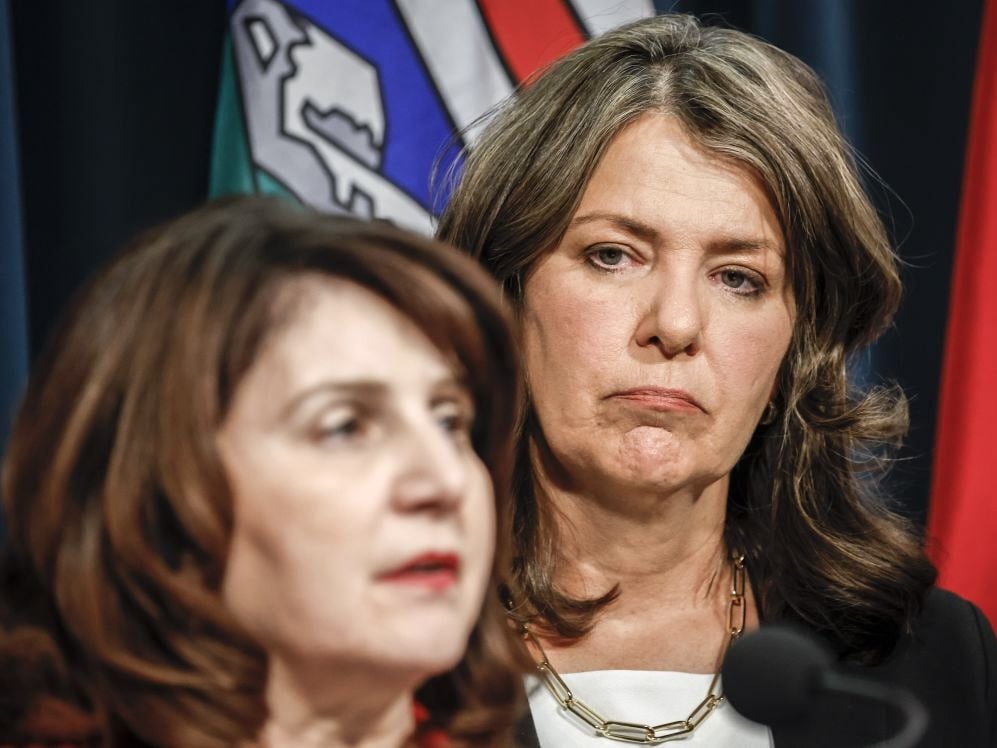Top Stories
Alberta’s For-Profit Surgery Initiative Faces Criticism and Challenges

The push for for-profit surgeries in Alberta is encountering significant criticism and operational challenges, according to various health professionals and former executives within the system. The initiative, spearheaded by the United Conservative Party (UCP), aims to alleviate long surgical wait times by funding an additional 50,000 procedures in chartered surgical facilities (CSFs) over the next three years. Yet, efforts to privatize surgical care have raised concerns about the impact on patients requiring more complex operations.
Dr. Ken Cheung, an anesthesiologist with 25 years of service at Calgary’s Foothills Medical Centre, expressed his discontent with the current health-care model, describing himself as a “conscientious objector.” He opposes the requirement for some medical professionals to work in CSFs, which he believes undermines the integrity of public health care. Along with a colleague, he has avoided working in these facilities by trading shifts, reflecting a growing sentiment among health care workers regarding the ethics of the for-profit system.
The UCP government has doubled down on its strategy, arguing that expanding the use of CSFs will help reduce wait times. However, an investigation by The Tyee reveals a concerning trend: while some wait lists for less complicated surgeries have seen slight improvements, wait times for critical procedures, particularly in oncology, have notably increased. Former senior health executive Dr. Braden Manns criticized the government’s focus on surgical volume rather than patient needs, stating, “They care about how many surgeries get done in a year.”
Concerns Over Staffing and Surgical Outcomes
According to interviews conducted by The Tyee, which included insights from four former senior executives of Alberta Health Services (AHS), there exists a pervasive climate of fear within the health-care system. Many interviewees, bound by non-disclosure agreements or fearing repercussions for speaking out, described an atmosphere of mistrust towards AHS and its data. Some even pointed to an ideological bias against the organization that has overseen Alberta’s public health care for over a decade.
The Alberta Surgical Initiative, which began in 2019, aims to expand the use of CSFs for procedures such as cataract and orthopedic surgeries. Although it has led to a temporary reduction in wait times for simpler surgeries, the long-term effects appear detrimental. A report from the Parkland Institute highlights that the push for privatization has diverted funds and key medical personnel from the public sector, leading to increased wait times for necessary surgeries, including cancer treatments.
The UCP government dismissed criticisms from health researchers and former executives, with Adriana LaGrange, Alberta’s Minister of Primary and Preventative Health, labeling the Parkland Institute as “the unofficial research arm of the NDP.” She asserted that the use of CSFs has played a crucial role in enhancing patient care, despite mounting evidence to the contrary.
Operational Challenges and Ethical Dilemmas
Despite the government’s insistence on the benefits of the private surgery initiative, alarming trends have emerged. A previously unpublished review obtained by The Tyee indicates that while low-acuity surgeries have been somewhat expedited in CSFs, critical cases are facing extended delays. The review emphasizes that the current model may exacerbate inequalities in health care access, particularly for patients requiring complex care coordination.
The government’s directive to prioritize surgeries in CSFs has led to scheduling conflicts for anesthesiologists and surgeons, further complicating the provision of care in public hospitals. Dr. Paul Parks, a former president of the Alberta Medical Association, noted that the lack of coordinated scheduling across facilities has created friction, hindering the delivery of care for more complicated cases.
Moreover, the private surgery initiative has not only strained resources but has also impacted the morale of staff in public hospitals. The statistics reveal that as the demand for surgeries increased, the available workforce to manage those cases dwindled. “The more that they opened up these private chartered surgical facilities, the more staff went out of the public system,” one former executive stated.
As the UCP government continues to promote its surgical initiative, the growing consensus among health professionals and former executives is that the current trajectory may not only fail to deliver on its promises but could potentially worsen the situation for Alberta’s health-care system. The debate over the effectiveness and ethics of for-profit surgeries will likely remain a focal point in discussions surrounding health policy in the province.
-

 Science3 months ago
Science3 months agoToyoake City Proposes Daily Two-Hour Smartphone Use Limit
-

 Top Stories3 months ago
Top Stories3 months agoPedestrian Fatally Injured in Esquimalt Collision on August 14
-

 Health3 months ago
Health3 months agoB.C. Review Reveals Urgent Need for Rare-Disease Drug Reforms
-

 Technology3 months ago
Technology3 months agoDark Adventure Game “Bye Sweet Carole” Set for October Release
-

 World3 months ago
World3 months agoJimmy Lai’s Defense Challenges Charges Under National Security Law
-

 Lifestyle3 months ago
Lifestyle3 months agoVictoria’s Pop-Up Shop Shines Light on B.C.’s Wolf Cull
-

 Technology3 months ago
Technology3 months agoKonami Revives Iconic Metal Gear Solid Delta Ahead of Release
-

 Technology3 months ago
Technology3 months agoApple Expands Self-Service Repair Program to Canada
-

 Technology3 months ago
Technology3 months agoSnapmaker U1 Color 3D Printer Redefines Speed and Sustainability
-

 Technology3 months ago
Technology3 months agoAION Folding Knife: Redefining EDC Design with Premium Materials
-

 Business3 months ago
Business3 months agoGordon Murray Automotive Unveils S1 LM and Le Mans GTR at Monterey
-

 Technology3 months ago
Technology3 months agoSolve Today’s Wordle Challenge: Hints and Answer for August 19









